Not ‘Self-Actualization’ But ‘Heaven’s Realization’
A few days later, when Jesus again entered Capernaum, the people heard that he had come home.2 They gathered in such large numbers that there was no room left, not even outside the door, and he preached the word to them. 3 Some men came, bringing to him a paralyzed man, carried by four of them. 4 Since they could not get him to Jesus because of the crowd, they made an opening in the roof above Jesus by digging through it and then lowered the mat the man was lying on. 5 When Jesus saw their faith, he said to the paralyzed man, “Son, your sins are forgiven.”
6 Now some teachers of the law were sitting there, thinking to themselves, 7 “Why does this fellow talk like that? He’s blaspheming! Who can forgive sins but God alone?”
8 Immediately Jesus knew in his spirit that this was what they were thinking in their hearts, and he said to them, “Why are you thinking these things? 9 Which is easier: to say to this paralyzed man, ‘Your sins are forgiven,’ or to say, ‘Get up, take your mat and walk’? 10 But I want you to know that the Son of Man has authority on earth to forgive sins.” So he said to the man, 11 “I tell you, get up, take your mat and go home.”12 He got up, took his mat and walked out in full view of them all. This amazed everyone and they praised God, saying, “We have never seen anything like this!” (Mark 2:1-12 — NIV)
Jesus was in the business of meeting needs, as illustrated in the story of the paralyzed man. He met spiritual needs (forgiveness of a man’s sin) and physical needs (healing his paralysis), and frankly, every need in-between.
Secular psychologist Abraham Maslow would likely have disagreed with Jesus’ order of things, and he wouldn’t have hypothesized that Jesus’ methods would ultimately lead to self-actualization — where, according to Maslow, one reaches his or her full potential. But then, I’m not sure he believed in Jesus as God’s Son, the Christ — though he certainly seems to have been a thoughtful and intellectual man, adding much for our consideration concerning the study of psychology.
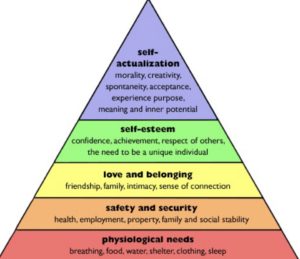
The problem with secular humanistic psychology is that it discounts or dismisses altogether the miraculous intervention of God in human life — where He takes a broken down (physically, mentally, emotionally or spiritually) person and calls him or her redeemed, valued and loved, no matter the person’s attained social status, education or physical or mental abilities. What happens in the succeeding days, no matter their number, is ultimately for God’s glory — though the changed life is certainly something beautiful to behold, humble as one’s life may appear to be.
Thus, life’s not about climbing a pyramid in order to reach a desired end — Maslow’s “self-actualization” — but rather, each of us, bearing the image of our loving Creator, is automatically and authentically, from before birth, “fearfully and wonderfully made” (Ps. 139:14) — created for eternity.
Period.
*********************************************************************************************
I was recently reminded of the story of the man lowered on a mat from Mark 2, having returned to my hometown for a visit. Covington is a small Ohio farming community — surrounded by cornfields and soybeans. It’s where I grew up, safe and sound. It’s where I met life-long friends who’ve helped me better understand and love myself. It’s where I participated in clubs and sports — sometimes receiving accolades and awards. It’s where I met my husband.
Most importantly, it’s where I met Jesus.
On this short trip, I visited Vicki, who — as my childhood best friend’s mom — has always been like a second mother to me. She still lives in a quaint house on Wall Street, just down from where her daughter Lisa and I attended junior high. Where I started going steady with Billy in the seventh grade. Though the school is gone, the sidewalk’s still there — where we often played 4-square when weather permitted. These heated ball-battles served as a means to propel us further along in our development, although we were completely unaware of it at the time. We were just kids having fun — in both the wins and losses, alongside our peers on those sunny days; yet, we were, nonetheless, discovering a deeper sense of belonging and a heightened awareness of esteem.
My visit with Vicki was very pleasant, as we reminisced and caught up on one another’s lives. As I looked around her living room where we sat, I commented on how I’d always loved her homey touches — so cozy and inviting. Vicki warned me, “Don’t look too closely” — fearing I might see dust build-up on knickknacks. I assured her it’s no different at my house — justifying that dust is merely evidence of good living going on. “After all,” I added, “If God saw fit to form us from dust, it can’t be all bad.”
Maybe it was talk of our respective homes and the many blessings in our lives or perhaps the humility of humanity, but suddenly our conversation shifted. Excited, Vicki said, “Let me show you something I’ve been working on with a group of women from my church.”
She disappeared for a moment. When she returned, she was carrying what appeared to be a rolled up rag rug. “Some of us have been making these,” she said as she unrolled it and laid it on the floor. “They take quite awhile — months, in fact — but I’m getting the hang of it. Once we have several completed, we’re going to take them to a local homeless shelter.”
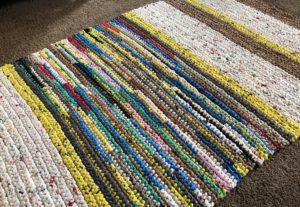
I stared at the rug, woven in an array of color. Reaching down to touch it, I discovered that it was crocheted, not from cotton, but from a plethora of plastic bags — collected, as Vicki explained, from a variety of stores.
“Wow!” I exclaimed. “How many bags does it take to make one of these rugs?”
“Actually, it’s a sleeping mat,” Vicki clarified. “And it takes approximately 700-800 bags woven together to make just one.” Rubbing her shoulder, she continued, “My work’s been slowed up a bit, due to my recent rotator cuff surgery, but it’s coming together, little by little.”
Up-cycling at its finest, plastic bags are repurposed to create sleeping mats — offering more than mere comfort. They add beauty to an otherwise cold and dirty place, allowing personal space for some who simply miss home. And although these mats certainly meet physiological and security needs, they do so much more.
Vicki and her church companions remind me of the paralytic man’s friends in Mark 2. These faithful friends dug through the roof of a house so they could lower a man in need down into the crowd, that he might, in turn, be lifted up, having encountered the One who heals. Yes, they were indeed good friends but they were more than that — they were faith-filled. Jesus — the great Savior — knew better the depth of the disabled man’s need, and because of his friends’ faith, Jesus forgave — knowing that sin-sickness is far worse than paralysis or any physiological, emotional or mental imperfection.
It seems Vicki and her friends understand this too. In their own simple way — using the gifts of their time and talent, despite personal imperfections — they’re following Christ, serving as his hands and feet to meet the needs of some who’ve perhaps not yet recognized the miracle of God’s touch, nor heard Him say,
“You are loved, just as you are. Now come — let me meet your need. Let Me lift you higher.”
And although Jesus asks each of us to follow his lead, he always led first by example — demonstrating with a twist of irony, with his very life, that everyone has needs. Yes, even him.
He experienced hunger and thirst and needed rest (Maslow’s “Physiological” need).
He understood homelessness — having no place to lay his head (Luke 9:58) or call his home (“Safety“).
He demonstrated the importance of friendship — surrounding himself with a group of disciples, as well as many others who loved him and whom he loved (“Love / Belonging“).
He looked to Abba for approval, longing to accomplish God’s will alone (Matt. 26:39) — ultimately demonstrating this by the sacrifice he made on the cross; thus, achieving for us salvation (“Esteem“).
But were these met needs leading Jesus to “self-actualization”? Or was there another goal upon which Jesus fixed his eyes — upon which he calls us, too, to fix our gaze as we press ahead?
Paul tells us not only what Christ did but also what we are to do that the goal might be reached.
Do nothing out of selfish ambition or vain conceit, but in humility consider others better than yourselves. Each of you should look not only to your own interests, but also to the interests of others. Your attitude should be the same as Christ Jesus:
Who, being in very nature God, did not consider equality with God something to be grasped, but made himself nothing, taking the very nature of a servant, being made in human likeness… he humbled himself and became obedient to death — even death on a cross! Therefore God exalted him to the highest place… (Phil. 2:3-9a — NIV).
Not self-actualization — where self is the goal; rather selflessness — where God and His purposes are the goal. Where the needs of others, too, are realized and one’s own desires are laid aside to help another — believing that, one day, our reward will be eternal life with Jesus.
Yes, one day — Heaven-realized, the prize made possible by God made flesh, who dwelt in dust, homeless though He was. This is where we fix our eyes as we press on — the desired motive behind each and every kind and humble and mundane deed we ever do, sinful though we are.
Even in the making of a sleeng mat, given to one in need that he or she may lie down comfortably while being lifted higher to the Healer. And who knows that Vicki’s and her friends’ faith, through serving in this simple manner, won’t ultimately lead to others’ forgiveness?
After all, sin-sickness is far worse than any earthly circumstance, as it holds one back from achieving what God desires most — a heart fully surrendered to Him that it might one day…
Heaven realize!
Yes, that day we hear our Father call us, His children, saying –
… Get up, take your mat and [come] home. (Mark 2:11)
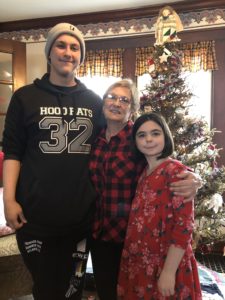
(Jacob and Allie with dear Vicki Hand, who serves as God’s hands and feet to those in need.)
Related Posts
4 Comments
Comments are closed.
Search
Subscribe to Blog via Email
Categories
- At Home (173)
- God's Word (180)
- His World (198)
- Uncategorized (5)

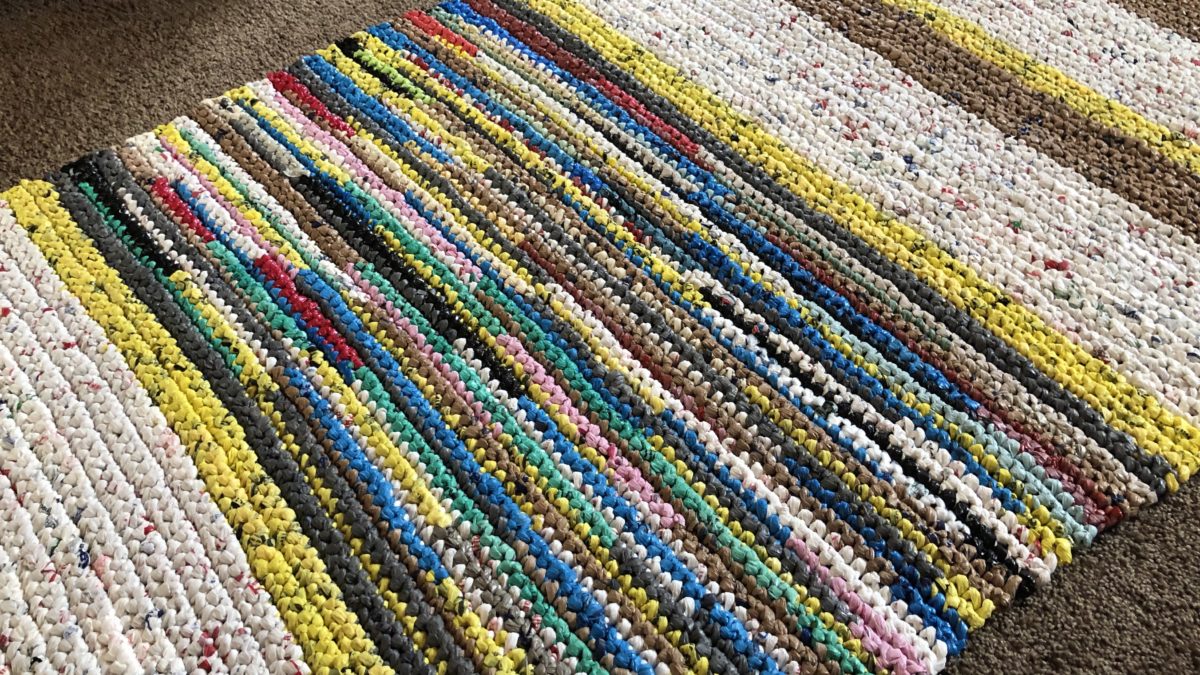
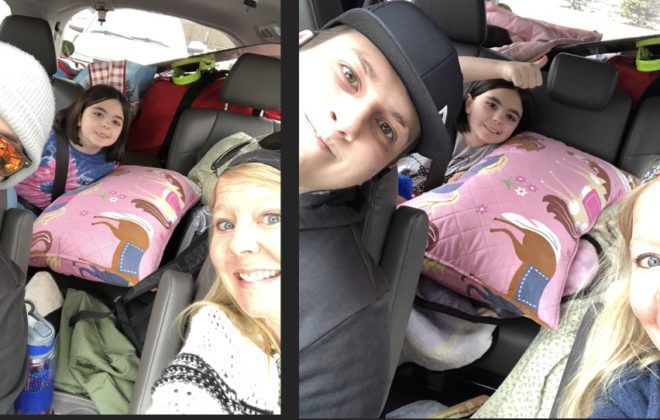
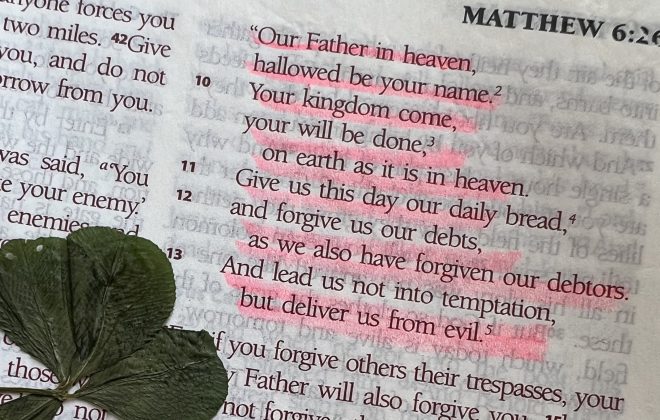
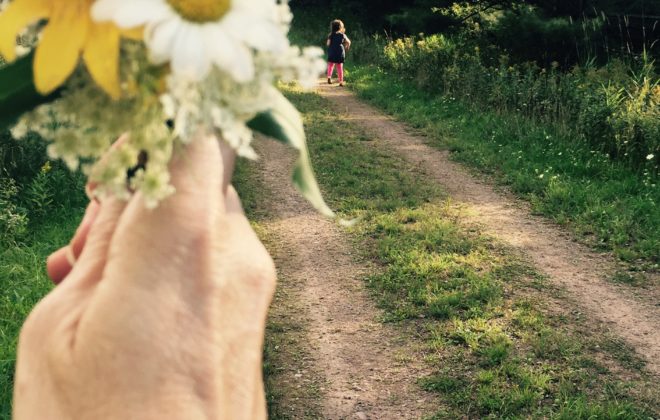
Very well done. I love the stories that tie it all together. Like a walk down memory lane. Love you and your beautiful mind!
Love you! Thankful you’re part of so many of my memories! ❤️
Beautiful ❤️
Thank you! ❤️